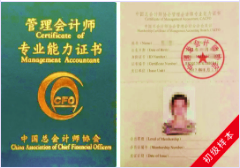經(jīng)濟(jì)因素對(duì)國(guó)際收支的影響
Several economic forces may have an impact on the balance of payments of a specific nation. Among these economic factors are the inflation rate, real growth in gross national product (GNP), interest rates, and the spot exchange rate (or current rate for exchanges of currency that day). For example, inflation may lead to price level increases, which make domestic goods and services relatively too expensive for non domestic buyers. Exports will become less competitive and imports will become more attractive to domestic consumers. As exports decline and imports rise, the balance of trade sector in the balance of payments may become negative, and if this trade deficit is not balanced by capital inflows, the basic balance of the balance of payments may be in deficit. The basic balance is essentially the balance of all current and capital account items including merchandise exports and imports, travel and transportation, current investment income inflows and outflows, and private long-term investment inflows and outflows.
有好幾種經(jīng)濟(jì)力對(duì)某一國(guó)家的國(guó)際收支有影響。在這些經(jīng)濟(jì)因素中有通貨膨脹率、國(guó)民生產(chǎn)總值的實(shí)際增長(zhǎng)、利率、以及即期匯率(或當(dāng)天貨幣的實(shí)時(shí)匯率)。例如,通貨膨脹可能會(huì)導(dǎo)致價(jià)格水平的上升,使得非本國(guó)的購(gòu)買(mǎi)者所購(gòu)買(mǎi)的商品和勞務(wù)相對(duì)較貴。出口的競(jìng)爭(zhēng)力會(huì)減弱,進(jìn)口對(duì)本國(guó)消費(fèi)者更有吸引力。隨著出口的下降,進(jìn)口的增加,國(guó)際收支平衡表中的貿(mào)易行業(yè)的差額可能成為負(fù)數(shù),而且,如果這個(gè)貿(mào)易赤字不能由資本輸入來(lái)平衡的話,那國(guó)際收支平衡表的基本差額就會(huì)出現(xiàn)逆差。基本差額主要是所有經(jīng)常項(xiàng)目和資本項(xiàng)目,包括商品出口和進(jìn)口、旅游運(yùn)輸,當(dāng)期投資收入流進(jìn)流出、以及私人長(zhǎng)期投資流入和流出。
High rates of growth in GNP tend to cause consumers to import more goods and services from abroad. Higher GNP pushes personal income up and if, as in the United States, consumers have a high propensity to import because of relatively higher incomes, imports may increase faster than exports, causing a dampening effect on the balance of payments. Lower GNP will usually result in lower imports of goods and services.
國(guó)民生產(chǎn)總值(GNP)的高速增長(zhǎng)易使消費(fèi)者從國(guó)外進(jìn)口更多的商品和勞務(wù)。較高的GNP會(huì)使個(gè)人的收入增加,如在美國(guó),由于相對(duì)較高的收入,消費(fèi)者有較高的進(jìn)口傾向,這樣,進(jìn)口比出口增長(zhǎng)得快,對(duì)國(guó)際收支產(chǎn)生抑制作用。較低的GNP通常導(dǎo)致商品和勞務(wù)進(jìn)口的減少。
Interest rates influence foreign investments in money and capital market instruments in a given country. If a country has high real interest rates relative to other countries, it will experience high inflows of funds for investment in financial instruments, as was the case in Germany in 1994. When real interest rates decline in a country, as in the United States during 1992-94, capital outflows occur and the basic balance deficit may increase. Expectations about the level of future interest rates may also have an impact on investment flows into and out of a country.
利率影響對(duì)某一國(guó)家貨幣市場(chǎng)與資本市場(chǎng)工具的對(duì)外投資。如果一國(guó)相對(duì)于其他國(guó)家真實(shí)利率較高,該國(guó)將會(huì)經(jīng)歷較高的資金流入投資于金融工具,在1944年德國(guó)發(fā)生過(guò)這種情況。當(dāng)一國(guó)真實(shí)利率下降,如在1992-1994年期間的美國(guó),發(fā)生資本流出,基本項(xiàng)目收支逆差可能會(huì)增加。關(guān)于未來(lái)利率水平的預(yù)期也可能對(duì)投資從一國(guó)的流入和流出產(chǎn)生影響。
Spot exchange rates influence the relative cost of imports vis-a-vis domestic goods and the relative cost of exports vis-a-vis foreign goods in importing countries. Relatively high exchange rates of the foreign currency compared to the domestic currency discourage imports and encourage exports, as in the case of the United States and Japan. The dollar has declined against the yen, making Japanese goods less attractive to U.S. consumers and U.S. goods and services more attractive to Japanese consumers. If the domestic currency appreciates against the foreign currency, export prices to foreigners will be less attractive and import prices to domestic citizens will be more attractive.
即期匯率影響進(jìn)口對(duì)國(guó)內(nèi)商品的比較成本和進(jìn)口國(guó)家出口對(duì)外國(guó)商品的比較成本。與本國(guó)貨幣相比,較高的外幣匯率阻礙進(jìn)口,鼓勵(lì)出口,這種情況在美國(guó)和日本都發(fā)生過(guò)。美元對(duì)日元匯率下降,使得日本貨對(duì)美國(guó)消費(fèi)者的吸引力下降,美國(guó)的商品和勞務(wù)對(duì)日本消費(fèi)者更有吸引力。如果本幣對(duì)外幣匯率下跌,出口商品價(jià)格對(duì)外國(guó)人的吸引力較低,對(duì)本國(guó)居民的進(jìn)口商品價(jià)格有更大的吸引力。
課程推薦
- 中級(jí)會(huì)計(jì)職稱(chēng)普通班
- 中級(jí)會(huì)計(jì)職稱(chēng)特色班
- 中級(jí)會(huì)計(jì)職稱(chēng)精品班
- 中級(jí)會(huì)計(jì)職稱(chēng)實(shí)驗(yàn)班
- 中級(jí)會(huì)計(jì)職稱(chēng)機(jī)考模擬系統(tǒng)綜合版
- 中級(jí)會(huì)計(jì)職稱(chēng)機(jī)考模擬系統(tǒng)實(shí)驗(yàn)版
| 模擬題庫(kù) | 題庫(kù)介紹 | 價(jià)格 | 購(gòu)買(mǎi) |
|---|---|---|---|
| 實(shí)驗(yàn)版 | 題庫(kù)特色 |
240元/一門(mén) 480元/兩門(mén) 720元/三門(mén) |
購(gòu)買(mǎi) |
最新新聞
網(wǎng)站地圖
-
財(cái)經(jīng)會(huì)計(jì)熱門(mén)證書(shū)
-
初級(jí)會(huì)計(jì)職稱(chēng)
-
中級(jí)會(huì)計(jì)職稱(chēng)
-
注冊(cè)會(huì)計(jì)師
-
外貿(mào)會(huì)計(jì)證
-
會(huì)計(jì)實(shí)務(wù)操作
專(zhuān)業(yè)知識(shí)水平考試:
考試內(nèi)容以管理會(huì)計(jì)師(中級(jí))教材:
《風(fēng)險(xiǎn)管理》、
《績(jī)效管理》、
《決策分析》、
《責(zé)任會(huì)計(jì)》為主,此外還包括:
管理會(huì)計(jì)職業(yè)道德、
《中國(guó)總會(huì)計(jì)師(CFO)能力框架》和
《中國(guó)管理會(huì)計(jì)職業(yè)能力框架》
能力水平考試:
包括簡(jiǎn)答題、考試案例指導(dǎo)及問(wèn)答和管理會(huì)計(jì)案例撰寫(xiě)。
- 管理會(huì)計(jì)師PCMA 免費(fèi)試聽(tīng)
- 中級(jí)管理會(huì)計(jì)師 免費(fèi)試聽(tīng)
- 稅務(wù)管理師 免費(fèi)試聽(tīng)
- 智能財(cái)務(wù)師 免費(fèi)試聽(tīng)
- 國(guó)際注冊(cè)會(huì)計(jì)師 免費(fèi)試聽(tīng)
- 國(guó)際財(cái)務(wù)管理師 免費(fèi)試聽(tīng)
- 初級(jí)會(huì)計(jì)職稱(chēng)考試 免費(fèi)試聽(tīng)
- 中級(jí)會(huì)計(jì)職稱(chēng)考試 免費(fèi)試聽(tīng)
- 注冊(cè)會(huì)計(jì)師考試 免費(fèi)試聽(tīng)
- 全國(guó)外貿(mào)會(huì)計(jì)考試 免費(fèi)試聽(tīng)
- 會(huì)計(jì)實(shí)務(wù)操作 免費(fèi)試聽(tīng)
- 管理會(huì)計(jì)師 免費(fèi)試聽(tīng)
專(zhuān)業(yè)知識(shí)水平考試:
考試內(nèi)容以管理會(huì)計(jì)師(中級(jí))教材:
《風(fēng)險(xiǎn)管理》、
《績(jī)效管理》、
《決策分析》、
《責(zé)任會(huì)計(jì)》為主,此外還包括:
管理會(huì)計(jì)職業(yè)道德、
《中國(guó)總會(huì)計(jì)師(CFO)能力框架》和
《中國(guó)管理會(huì)計(jì)職業(yè)能力框架》
能力水平考試:
包括簡(jiǎn)答題、考試案例指導(dǎo)及問(wèn)答和管理會(huì)計(jì)案例撰寫(xiě)。

 您現(xiàn)在的位置:
您現(xiàn)在的位置:







